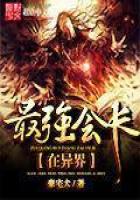The door of the front room had been taken off its hinges to give more space, and that of the room Henchard sat in being ajar, he could see fractional parts of the dancers whenever their gyrations brought them near the doorway, chiefly in the shape of the skirts of dresses and streaming curls of hair;together with about three-fifths of the band in profile, including the restless shadow of a fiddler's elbow, and the tip of the bass-viol bow.
The gaiety jarred upon Henchard's spirits; and he could not quite understand why Farfrae, a much-sobered man, and a widower, who had had his trials, should have cared for it all, notwithstanding the fact that he was quite a young man still, and quickly kindled to enthusiasm by dance and song.
That the quiet Elizabeth, who had long ago appraised life at a moderate value, and who knew in spite of her maidenhood that marriage was as a rule no dancing matter, should have had zest for this revelry surprised him still more. However, young people could not be quite old people, he concluded, and custom was omnipotent. With the progress of the dance the performers spread out somewhat, and then for the first time he caught a glimpse of the once despised daughter who had mastered him, and made his heart ache.
She was in a dress of white silk or satin, he was not near enough to say which - snowy white, without a tinge of milk or cream; and the expression of her face was one of nervous pleasure rather than of gaiety. Presently Farfrae came round, his exuberant Scotch movement ****** him conspicuous in a moment. The pair were not dancing together, but Henchard could discern that whenever the changes of the figure made them the partners of a moment their emotions breathed a much subtler essence than at other times.
By degrees Henchard became aware that the measure was trod by some one who out-Farfraed Farfrae in saltatory intenseness. This was strange, and it was stranger to find that eclipsing personage was Elizabeth-Jane's partner.
The first time that Henchard saw him he was sweeping grandly round, his head quivering and low down, his legs in the form of an X and his back towards the door. The next time he came round in the other direction, his white waistcoat preceding his face, and his toes preceding his white waistcoat.
That happy face - Henchard's complete discomfiture lay in it. It was Newson's, who had indeed come and supplanted him.
Henchard pushed to the door, and for some seconds made no other movement.
He rose to his feet, and stood like a dark ruin, obscured by "the shade from his own soul upthrown".
But he was no longer the man to stand these reverses unmoved. His agitation was great, and he would fain have been gone, but before he could leave the dance had ended, the housekeeper had informed Elizabeth-Jane of the stranger who awaited her, and she entered the room immediately.
"Oh - it is - Mr Henchard!" she said, starting back.
"What; Elizabeth?" he cried, as he seized her hand. "What do you say?
- Mr Henchard? Don't, don't scourge me like that!Call me worthless old Henchard - anything - but don't 'ee be so cold as this! O my maid -I see you have another - a real father in my place. Then you know all;but don't give all your thought to him! Do ye save a little room for me!"She flushed up, and gently drew her hand away. "I could have loved you always - I would have gladly," said she. "But how can I when I know you have deceived me so - so bitterly deceived me! You persuaded me that my father was not my father - allowed me to live on in ignorance of the truth for years; and then when he, my warm-hearted real father, came to find me, cruelly sent him away with a wicked invention of my death, which nearly broke his heart. O how can I love as I once did a man who has served us like this!"Henchard's lips half parted to begin an explanation. But he shut them up like a vice, and uttered not a sound. How should he, there and then, set before her with any effect the palliatives of his great faults - that he had himself been deceived in her identity at first, till informed by her mother's letter that his own child had died; that, in the second accusation, his lie had been the last desperate throw of a gamester who loved her affection better than his own honour? Among the many hindrances to such a pleading not the least was this, that he did not sufficiently value himself to lessen his sufferings by strenuous appeal or elaborate argument.
Waiving, therefore, his privilege of self-defence, he regarded only her discomposure. "Don't ye distress yourself on my account," he said, with proud superiority. "I would not wish it - at such a time, too, as this. I have done wrong in coming to 'ee - I see my error. But it is only for once, so forgive it. I'll never trouble 'ee again, Elizabeth-Jane -no, not to my dying day! Good night. Good-bye!"Then, before she could collect her thoughts, Henchard went out from her rooms, and departed from the house by the back way as he had come;and she saw him no more.
HARDY: The Mayor of Casterbridge - * XLV *











